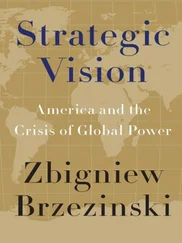Mass meetings on behalf of the Armenians amount to nothing whatever if they are mere methods of giving a sentimental but ineffective and safe outlet to the emotion of those engaged in them. Indeed they amount to less than nothing…Until we put honor and duty first, and are willing to risk something in order to achieve righteousness both for ourselves and for others, we shall accomplish nothing; and we shall earn and deserve the contempt of the strong nations of mankind. 33
Roosevelt wondered how anyone could possibly advise neutrality “between despairing and hunted people, people whose little children are murdered and their women raped, and the victorious and evil wrongdoers.” He observed that such a position put “safety in the present above both duty in the present and safety in the future.” 34Roosevelt would grow even angrier later in the war, when the very relief campaign initiated to aid the Armenians would be invoked as reason not to make war on Turkey. In 1918 he wrote to Cleveland Dodge, the most influential member of the Armenia committee: “To allow the Turks to massacre the Armenians and then solicit permission to help the survivors and then to allege the fact that we are helping the survivors as a reason why we should not follow the only policy that will permanently put a stop to such massacres is both foolish and odious.” 35
Morgenthau tried to work around America’s determined neutrality. In September 1915 he offered to raise $1 million to transport to the United States the Armenians who had escaped the massacres. “Since May,” Morgenthau said, “350,000 Armenians have been slaughtered or have died of starvation. There are 550,000 Armenians who could now be sent to America, and we need help to save them.” Turkey accepted the proposal, and Morgenthau called upon each of the states in the western United States to raise funds to equip a ship to transport and care for Armenian refugees. He appealed to American self-interest, arguing, “The Armenians are a moral, hard working race, and would make good citizens to settle the less thickly populated parts of the Western States.” 36He knew he had to preemptively rebut those who expected Armenian freeloaders. But the Turks, insincere even about helping Armenians leave, blocked the exit of refugees. Morgenthau’s plan went nowhere. 37
As American missionaries were driven out of Turkey, they returned to the United States with stories to tell. William A. Shedd, a Presbyterian missionary, chose to write directly to the new U.S. secretary of state, Robert Lansing:
I am sure there are a great many thoughtful Americans who, like myself, feel that silence on the part of our Government is perilous and that for our Government to make no public protest against a crime of such magnitude perpetrated by a Government on noncombatants, the great majority of them helpless women and children, is to miss an unusual opportunity to serve humanity, if not to risk grave danger of dishonor on the name of America and of lessening our right to speak for humanity and justice. I am aware, of course, that it may seem presumptuous to suggest procedure in matters of diplomacy; but the need of these multitudes of people suffering in Turkey is desperate, and the only hope of influence is the Government of the United States. 38
But Lansing had been advised by the Division of Near East Affairs at the State Department that “however much we may deplore the suffering of the Armenians, we cannot take any active steps to come to their assistance at the present time.” 39Lansing instructed Morgenthau to continue telling the Turkish authorities that the atrocities would “jeopardize the good feeling of the people of the United States toward the people of Turkey.” 40Lansing also eventually asked Germany to try to restrain Turkey. But he expressed understanding for Turkey’s security concerns. “I could see that [the Armenians’] well-known disloyalty to the Ottoman Government and the fact that the territory which they inhabited was within the zone of military operations constituted grounds more or less justifiable for compelling them to depart their homes,” Secretary Lansing wrote in November 1916. 41Morgenthau examined the facts and saw a cold-blooded campaign of annihilation; Lansing processed many of those same facts and saw an unfortunate but understandable effort to quell an internal security threat.
After twenty-six months in Constantinople, Morgenthau left in early 1916. He could no longer stand his impotence. “My failure to stop the destruction of the Armenians,” he recalled, “had made Turkey for me a place of horror—I had reached the end of my resources.” 42More than 1 million Armenians had been killed on his watch. Morgenthau, who had earned a reputation as a loose cannon, did not receive another appointment in the Wilson administration. President Wilson, reflecting the overwhelming view of the American people, stayed on the sidelines of World War I as long as he could. And when the United States finally entered the conflict against Germany in April 1917, he refused to declare war on or even break off relations with the Ottoman Empire. “We shall go wherever the necessities of this war carry us,” Wilson told Congress, “but it seems to me that we should go only where immediate and practical considerations lead us and not heed any others.” 43In the end it was Turkey that broke off ties with the United States.
America’s nonresponse to the Turkish horrors established patterns that would be repeated. Time and again the U.S. government would be reluctant to cast aside its neutrality and formally denounce a fellow state for its atrocities. Time and again though U.S. officials would learn that huge numbers of civilians were being slaughtered, the impact of this knowledge would be blunted by their uncertainty about the facts and their rationalization that a firmer U.S. stand would make little difference. Time and again American assumptions and policies would be contested by Americans in the field closest to the slaughter, who would try to stir the imaginations of their political superiors. And time and again these advocates would fail to sway Washington. The United States would offer humanitarian aid to the survivors of “race murder” but would leave those committing it alone.
Aftermath
When the war ended in 1918, the question of war guilt loomed large at the Paris peace conference. Britain, France, and Russia urged that state authorities in Germany, Austria, and Turkey be held responsible for violations of the laws of war and the “laws of humanity.” They began planning the century’s first international war crimes tribunal, hoping to try the kaiser and his German underlings, as well as Talaat, Enver Pasha, and the other leading Turkish perpetrators. But Lansing dissented on behalf of the United States. In general the Wilson administration opposed the Allies’ proposals to emasculate Germany. But it also rejected the notion that some allegedly “universal” principle of justice should allow punishment. The laws of humanity, Lansing argued, “vary with the individual.” Reflecting the widespread view of the time, Lansing said that sovereign leaders should be immune from prosecution. “The essence of sovereignty,” he said, was “the absence of responsibility.” 44The United States could judge only those violations that were committed upon American persons or American property. 45
If such a tribunal were set up, then, the United States would not participate. In American thinking at that time, there was little question that the state’s right to be left alone automatically trumped any individual right to justice. A growing postwar isolationism made the United States reluctant to entangle itself in affairs so clearly removed from America’s narrow national interests.
Even without official U.S. support, it initially seemed that Britain’s wartime pledge to try the Turkish leaders would be realized. In early 1919 the British, who still occupied Turkey with some 320,000 soldiers, pressured the cooperative sultan to arrest a number of Turkish executioners. Of the eight Ottoman leaders who led Turkey to war against the Allies, five were apprehended. In April 1919 the Turks set up a tribunal in Constantinople that convicted two senior district officials for deporting Armenians and acting “against humanity and civilization.” The Turkish court found that women and children had been brutally forced into deportation caravans and the men murdered: “They were premeditatedly,with intent, murdered, after the men had had their hands tied behind their backs.” The police commander Tevfik Bey was sentenced to fifteen years of hard labor, and Lieutenant Governor Kemal Bey was hanged. The court also convicted Talaat and his partners in crime in absentia for their command responsibility in the slaughter, finding a top-down, carefully executed plan: “The disaster visiting the Armenians was not a local or isolated event. It was the result of a premeditated decision taken by a central body;…and the immolations and excesses which took place were based on oral and written orders issued by that central body.” 46
Читать дальше












